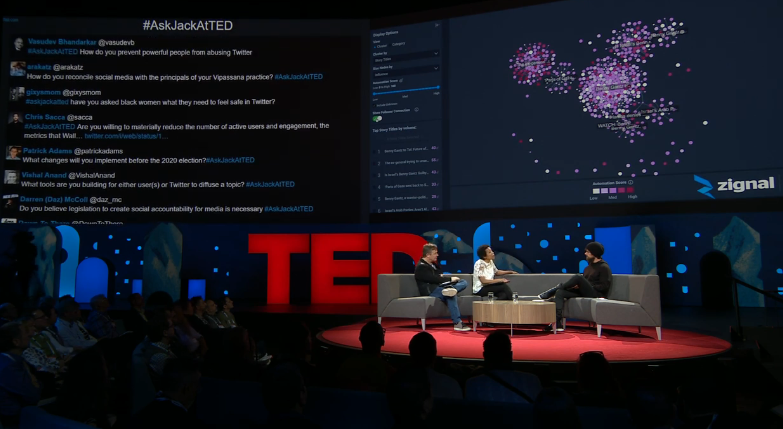What we could do instead is allow you to follow an interest, follow a hashtag, follow a trend, follow a community,
我們可以改進的地方在于讓你關注一項興趣愛好,關注一個標簽,關注一種趨勢,關注一個群體。
which gives us the opportunity to show all of the accounts, all the topics, all the moments, all the hashtags
通過這種方式,我們可以給你推薦與你興趣有關的所有賬號、所有話題、
that are associated with that particular topic and interest, which really opens up the perspective that you see.
所有時刻以及所有標簽,這可以開拓用戶的視野。
But that is a huge fundamental shift to bias the entire network away from just an account bias towards a topics and interest bias.
但要從只關注特定賬號、話題和興趣愛好,轉而關注整個社交網絡,這是一個非常巨大的轉變。
Because isn't it the case that one reason why you have so much content on there is a result of putting millions of people around the world
但之所以推特上內容豐富,是因為推特使全球很多人在“角斗場”中相互競爭,
in this kind of gladiatorial contest with each other for followers, for attention? Like, from the point of view of people who just read Twitter,
看誰有更多的粉絲,獲得更多的關注嗎?我是說,對于那些關注者而言,

that's not an issue, but for the people who actually create it, everyone's out there saying, "You know, I wish I had a few more 'likes,' followers, retweets."
這并不是什么大問題。但對于那些博主而言,每個人都在說,“你知道嗎,我希望我也能有更多的贊、更多的粉絲和轉發,”
And so they're constantly experimenting, trying to find the path to do that.
所以他們不斷地嘗試,希望通過某種方式來做到這一點。
And what we've all discovered is that the number one path to do that is to be some form of provocative, obnoxious,
并且我們發現,能達成這個目的最有效方法,就是發表挑釁的、討厭的、
eloquently obnoxious, like, eloquent insults are a dream on Twitter, where you rapidly pile up
詞藻華麗而令人憎惡的言論,比方說,在推特上花式罵人,如果你不停地侮辱他人,
and it becomes this self-fueling process of driving outrage. How do you defuse that?
最終憤怒的情緒就會自然不斷地蔓延到其他人。你要怎么解決這個問題?












